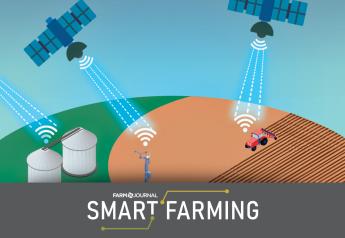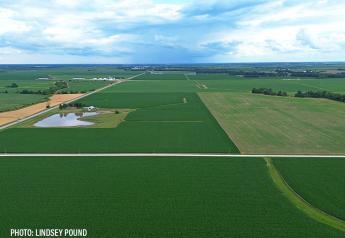“Bee Where” Gives California Enforcement Teeth

A new California law goes into effect Jan. 1, 2019 to make it unlawful to maintain an unregistered apiary and provides a new structure to encourage more compliance. The ag industry and the beekeeper association recognized that existing regulations needed better protocol for enforcement to improve registration rates and communication between agriculture and apiaries.
“We all worked together in this new program–the California pest advisers, the California department of food and agriculture, the almond board and the beekeepers association,” explains Ruben Arroyo Riverside County Agricultural Commissioner.
Going into effect January 1, 2019, Assembly Bill 2468 establishes the “Bee Where” program which will digitize the location of hives. It’s a proactive program using technology and collaboration to increase compliance. Current fines range from $50 to $500 for not properly registering a bee hive, and the commission is still working with the industry to set the fine structure beginning in 2020.
The county ag commissioners are responsible for collecting the $10 annual registration fee per beekeeper (no matter how many hives they have.) And with “Bee Where” the program is moving from corkboards with pins in them to a completely online interface with a live-updated map for hive location—while still maintaining apiary’s exact location as private.
“This system will be much more reliable to provide the 48-hour bee check that applicators need before making a crop protection application,” Arroyo says. “With the program now being digital, we can also alert an applicator with an online notification or a phone call if a hive is within the 1 mile radius of the planned application.”
For the San Juaquin Valley’s almond crop, it’s estimated 1.5 million bee hives are required for the crop’s pollination every February and March, and 85% of bees go through almonds before they hit another commodity. And 1.2 million hives cross the California border, so hive location and movement is an important detail to track as pest control advisers (PCA) make recommendations for any kind of application that could effect bee health.
“There have long been regulations around bees and hives. And the compliance rate for hive registration has been sadly very low,” says Ruthann Anderson, California Association of Pest Control Advisers (CAPCA) chief executive officer. “This new law will help us encourage hive registration because accurate tracking and notification are key to pollinator protection.”
The registration system will launch in December 2018 powered by FieldWatch.
“This isn’t to punish people—it’s all about protecting the bees. And honestly, it’s the first time in my career that the beekeepers, almond board, and other parts of the industry worked together and got involved to writing regulation on pesticides and support this bill. It was a cooperative effort,” Arroyo says.
Learn more at the Bee Where website







